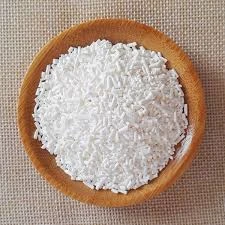
potash fertilizer
The Importance of Potash Fertilizer in Modern Agriculture
Potash fertilizer, a key player in the realm of agricultural productivity, has garnered significant attention for its crucial role in enhancing crop yields and improving soil fertility. Composed primarily of potassium salt, potash is essential for the healthy growth of plants, playing a pivotal role in metabolic processes, stress resistance, and overall plant health.
Understanding Potash Fertilizer
Potash is not just a single compound but a group of potassium-containing minerals and chemicals. The most common form is potassium chloride (KCl), but other variants like potassium sulfate (K2SO4) and potassium nitrate (KNO3) also have agricultural applications. Potassium, the nutrient represented by the letter K in the N-P-K (Nitrogen-Phosphorus-Potassium) fertilizer formula, is vital for several physiological functions in plants.
The Role of Potassium in Plant Growth
Potassium is integral to various plant functions, including photosynthesis, water regulation, and enzyme activation. It helps in the synthesis of proteins and starches, contributing to the formation of fruits and grains. A sufficient supply of potassium is crucial for enabling plants to withstand environmental stresses such as drought and disease, which can significantly affect agricultural outputs. Therefore, the application of potash fertilizer directly influences not just the quantity but the quality of the crop produced.
Benefits of Using Potash Fertilizer
1. Enhanced Crop Yield Research shows that the application of potash can lead to remarkable increases in yield. It contributes to better root development, promotes flowering and fruiting, and enhances the overall vigor of the plant.
potash fertilizer

2. Improved Nutrient Uptake Potash aids in the absorption of other essential nutrients, such as nitrogen and phosphorus. A balanced supply of these nutrients is important for optimum plant growth and development.
3. Increased Resistance to Disease Adequate potassium levels can bolster a plant's defense mechanisms, making it less susceptible to diseases and pests. This resilience not only protects the crop but also reduces the need for chemical pesticides.
4. Optimized Water Use Efficiency Potassium plays a significant role in regulating water uptake and transpiration. This efficiency is critical, especially in drought-prone areas, allowing crops to maintain hydration levels and minimize water stress.
5. Soil Health Improvement Regular use of potash can help maintain soil fertility by replenishing potassium levels, which can become depleted due to continuous cropping. Healthy soils are foundational for sustainable agriculture.
Environmental Considerations
While potash fertilizer is invaluable for agriculture, its application must be managed responsibly to mitigate environmental impacts. Over-application can lead to nutrient runoff, which poses risks to water quality and can disrupt aquatic ecosystems. Thus, farmers are encouraged to adopt precision agriculture techniques, which involve soil testing and tailored fertilizer applications based on specific crop requirements.
Conclusion
Potash fertilizer remains an indispensable resource in the toolbox of modern agriculture. Its ability to boost crop yields, improve soil health, and enhance plant resilience underscores the importance of potassium in agricultural practices. As the global population continues to rise and the demand for food increases, the strategic use of potash, paired with sustainable farming practices, will be integral to meeting future food security challenges. By recognizing the critical role that potash plays in agriculture, farmers can better equip themselves to cultivate healthier, more sustainable crops for generations to come.
-
Pure Sodium Dichloroisocyanurate Dihydrate | Powerful DisinfectantNewsAug.29,2025
-
Industrial Chemicals: Quality & Purity for Every IndustryNewsAug.28,2025
-
Nitrile Rubber Honoring Strict Production StandardsNewsAug.22,2025
-
Aspartame Ingredients Honoring Food Safety ValuesNewsAug.22,2025
-
Fertilizer for Balanced Plant NutritionNewsAug.22,2025
-
Cyanide Gold Processing with High Purity AdditivesNewsAug.22,2025
-
Formic Acid in Textile Dyeing ApplicationsNewsAug.22,2025
Hebei Tenger Chemical Technology Co., Ltd. focuses on the chemical industry and is committed to the export service of chemical raw materials.
-

view more DiethanolisopropanolamineIn the ever-growing field of chemical solutions, diethanolisopropanolamine (DEIPA) stands out as a versatile and important compound. Due to its unique chemical structure and properties, DEIPA is of interest to various industries including construction, personal care, and agriculture. -

view more TriisopropanolamineTriisopropanolamine (TIPA) alkanol amine substance, is a kind of alcohol amine compound with amino and alcohol hydroxyl, and because of its molecules contains both amino and hydroxyl. -

view more Tetramethyl Thiuram DisulfideTetramethyl thiuram disulfide, also known as TMTD, is a white to light-yellow powder with a distinct sulfur-like odor. It is soluble in organic solvents such as benzene, acetone, and ethyl acetate, making it highly versatile for use in different formulations. TMTD is known for its excellent vulcanization acceleration properties, which makes it a key ingredient in the production of rubber products. Additionally, it acts as an effective fungicide and bactericide, making it valuable in agricultural applications. Its high purity and stability ensure consistent performance, making it a preferred choice for manufacturers across various industries.





